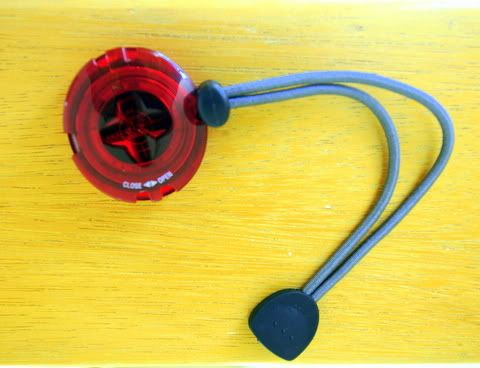Short answer: Don't fall overboard at night. Encourage / urge the buddy system for passengers and crew on deck at night.
...at night, without a lighted float and GPS to help you, you will be very lucky to find the victim if you lose visual contact with them. And on a very dark night you will lose visual contact within moments.
I agree with LeadTurn_SD: First answer is don't fall overboard, especially at night - your odds of survival aren't good. Corollary #1: If you're a guy, relieve yourself in the head, not over the side (an astonishingly high percentage of men found drowned after falling overboard had their fly open). Corollary #2: Carry one of
these - they're easier to spot than fixed lights or cyalumes, and they serve as flashlights also.
Second answer is that proximity is key, so stop the boat immediately, unless it takes a very long time to do that. A crash stop in any boat under about 100' is going to keep you closer than a Williamson turn; blow a horn, make sure the MOB isn't in the screws, and and park it
right NOW. If on a sailboat, regardless of what point of sail you're on, turn into the wind without touching the sheets (destroying sails is preferable to losing contact with the MOB), then take sails down, start the engine, and return to the MOB point. Once stopped, do what you need to to return to the MOB site without running the MOB down.
At least one person points and keeps pointing until the MOB is back aboard - move others out of the way as necessary to make this possible. Second person throws a fender or lifering immediately, and prepares another with a line attached ASAP. Extra throwing lines, preferably with fenders or rings, are often useful in case the first one misses (a drybag that has only light clothes or nothing but air sealed up in it can also serve the same function as a fender). Helmsman (navigator) hits MOB on the GPS (if available), and navigates back to that point to begin a search.
Keep the chatter down as much as possible - the helmsman and the lookout/pointer need to be able to communicate clearly and efficiently. Anything that doesn't contribute directly to that communication is putting the life of the MOB at increased risk.




